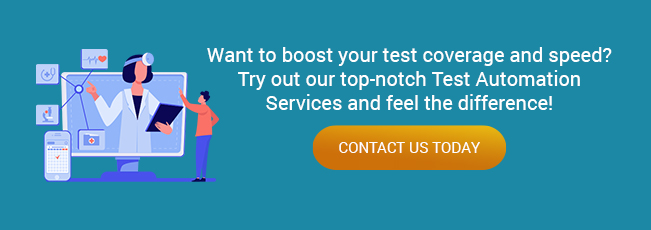The healthcare industry is innovating at a rapid phase. The past few decades brought countless advancements in the health sector. These innovations are bringing us closer to learning and solving complex issues. So, all healthcare organisations can benefit from outsourcing to create software solutions to lead, innovate and excel.
Now, the adaption of advanced healthcare app development by healthcare companies is changing the face of the healthcare industry. Their inventions are broad, so they cannot experiment with medical software development. They are involved in many other aspects, such as clinical services, health-related support, and drug and medical equipment development.
Table of contents
Custom software development is designing, deploying, and maintaining software for a specific group of users, functions, or organisations. In contrast to commercial off-the-shelf (COTS) software, custom software development focuses on a narrowly defined set of requirements. COTS addresses various needs, allowing it to be packaged, commercially marketed, and distributed. Custom software and its development are also known as bespoke software.
Also Read: What Is Test-Driven Development And What Are Its Benefits?
Development teams typically do custom software in-house or outsourced to a third party. The same methods and methodologies apply to custom software development as to other types of software development. A custom project would go through the same processes as any other software project, such as requirements gathering, code building, testing, and deployment. It would employ the same approaches, such as Agile, DevOps, or Rapid Application Development.
Today, technological advancements such as big data, electronic patient record systems, interoperability, and machine learning are driving healthcare. The need for this is to improve patient experiences and health outcomes. To do so, there is a need for professionally created tools and solutions that may assist healthcare practitioners in providing patient-centred and cost-effective treatment.
Designing web or mobile apps allows medical practitioners to better communicate with patients, leverage medical data analytics, and access patient health records, known as custom healthcare software development.
Outsourcing, defined as the use of an external resource, is the transfer of particular types or functions of industrial entrepreneurial operations from one firm to another operating in the needed field, based on an agreement. Unlike services and support, which are one-time, episodic, or incidental and have a beginning and end point, outsourcing is typically the role of professional support for the continuous operation of individual systems and infrastructure under a long-term contract. Now let’s briefly look at a few key benefits of outsourcing custom software development.
The key eight areas of healthcare that the introduction of cutting-edge software solutions has most impacted are covered below.
By offering patients advanced diagnosis and efficient operations management, advanced diagnosis technology is revolutionising the healthcare industry. The use of AI-powered tools is accelerating medication development. Modern software solutions are available in the market, which aids in the early identification of critical illnesses.
Every healthcare organisation is unique in terms of patient care, functional areas, technologies, and methodologies.Therefore, commercial software cannot meet all of the requirements of such a sector. Such specialised needs can only be met by custom software. Additionally, automation, AI, machine learning, etc., help the organisation.
Every day, the healthcare industry produces a lot of data. Data security is therefore of utmost importance in this industry. Hybrid applications protect patient data from malicious attacks and breaches. Patients feel secure when providing personal information in such a tailored application.
Long lines at hospitals not only put your patience to the test but also delay the consultation process. This is where we all face more trouble since the treatment delayed is always the treatment denied. But with the advent of AI-driven software, this issue is easily resolved. The top consultation software includes Practo, Veribook, Cogsworth, Intelligent Medical Software, 10 to 8 Scheduling Software, and many others.
Also Read: Blockchain In Healthcare: How Is It Reviving The Industry’s Capabilities?
Modern software is replacing the paper-based environment of the traditional medical record maintenance system with a digital one. The Electronic Medical Record (EMR) can store patient data from many different people in a safe location hosted on a cloud. It lowers operating costs and raises any healthcare organisation’s return on investment. Thus, hybrid software has a pivotal role in supporting massive business growth.
The leading businesses create software compatible with various devices, including tablets, smartphones, and desktops. The data is synchronised if all parties involved in a healthcare organisation use the same software. The primary users of the system are physicians and patients, both of whom have mobile access. Access to real-time data allows the consultation process to be completed more quickly.
By incorporating cutting-edge technologies, automated systems, and advanced systems, custom software transforms the conventional healthcare system. Every small process, from patient appointment scheduling to data storage, is redesigned. The custom software streamlines the outdated procedures to a greater extent to conform to the current healthcare standards.
The limitations of off-the-shelf software prevent it from providing dynamic business growth and scalability. The vendor, however, ensures that the custom solution scales your company’s growth at all levels when you hire a software company to develop one. With the aid of specialised software, healthcare organisations can thus achieve long-term sustainability in terms of hassle-free operation, smooth maintenance, and effective work processes.
Also Read: What Is AI-Informed Testing and How Can Businesses Benefit From AI During Software Testing?
The future of the healthcare industry is personalisation. Moreover, personalisation is the cornerstone of custom software, which can revitalise the current infrastructure by altering every patient touchpoint.
In a nutshell, both packaged and customised software solutions quicken the pace of medicine development, guarantee top-notch disease diagnosis, secure important data in the cloud, and provide advanced recovery solutions through cognitive data analysis. Additionally, it raises the standard of healthcare, which is crucial for a nation’s overall development.
Many SMBs and Enterprises have used ThinkPalm as a technology partner to develop custom software that meets their needs. Check out our range of software development services to learn more about us.